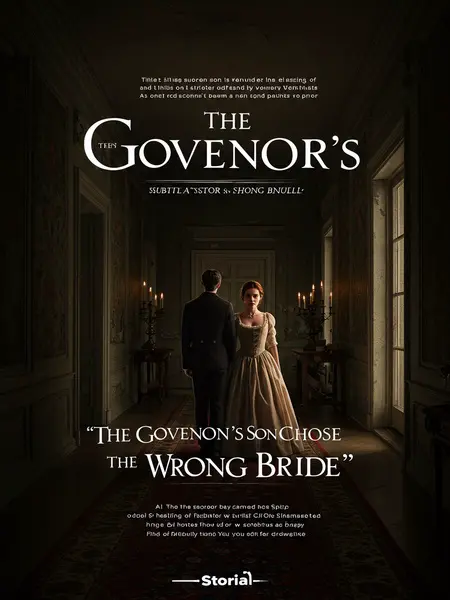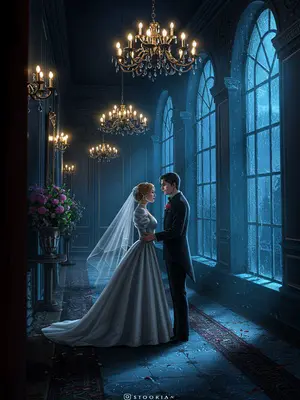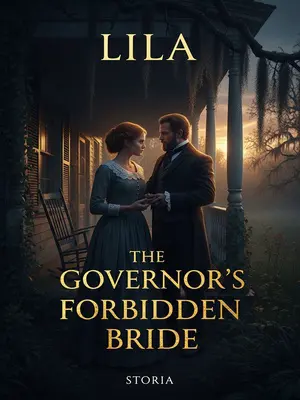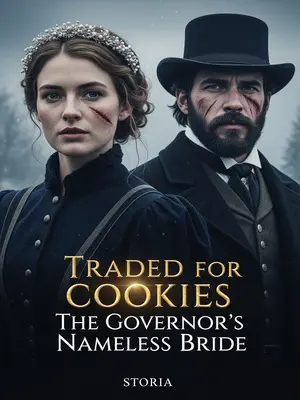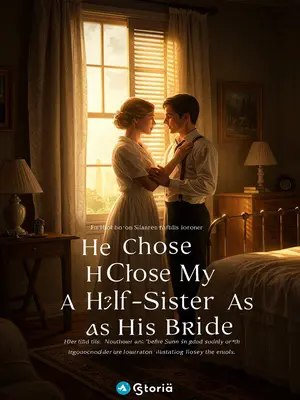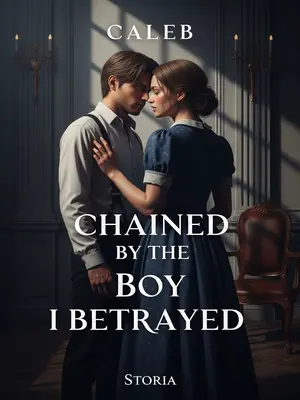Chapter 4: Stones and Cicadas
The first time I saw the governor’s son, Caleb Foster, was when he got engaged to my older sister, Lillian. At that moment, I knew: even if I had to use every trick in the book, I had to marry him. He was the stepping stone I’d chosen for myself. I would climb higher and higher upon him, to the very top. From then on, when I, Anna Foster, said one, it would mean one; said two, it would mean two. No one would ever use me, control me, humiliate me, or trample me again.
His smile was pure Southern charm, but his eyes had the cold calculation of a chess master. I watched him at family brunches—how he never missed a beat, always knew which fork to use and which heartstring to tug. Even then, I promised myself I would become the sort of woman who never had to wonder if she belonged. I’d seen what it cost to be dispensable.
I was grateful that God finally showed me mercy. Lillian, doted on by the first wife, was wild and unconventional. She was obsessed with cowboy movies and thought every street in Savannah should have a saloon. She sailed on lakes, dressed up as a cowboy, ate burgers by the handful, drank beer by the pitcher, even chased after true love.
Our house was a carousel of Lillian’s exploits—leather boots on the mahogany table, Stetson hats tossed over velvet chairs. She talked with her mouth full, laughed too loudly, and made friends with every bartender along River Street. If there was a midnight ghost tour or a lakeside bonfire, Lillian was already there, dragging me along if she remembered.
At first, my father was furious—he grounded her and made her write essays as punishment. Three wooden rulers broke, but her spirit remained unbroken. If she wasn’t climbing onto the roof, she was sneaking out the window. My father got sick several times, sighing in despair.
Lillian’s room looked like a hurricane had swept through—a tangle of boots, old jeans, adventure novels, and half-finished diaries. Whenever Dad tried to rein her in, she’d flash him that wild grin and disappear for days. Once, he caught her rappelling out the window with a rope made from bed sheets. It became legend among the house staff. Dad’s blood pressure never recovered.
As for me, I always upheld the model of a proper young lady—skilled in every art, with a temperament and appearance above all others. My father feared that if my sister married Caleb Foster, she would bring disaster. So he discussed with Caleb the possibility of breaking off the engagement or switching the bride.
Every Sunday, I played Chopin in the parlor, poured sweet tea just so, and kept my posture perfect even when nobody was looking. I made sure the family name sounded like grace on everyone’s lips. I was the daughter folks wanted to claim for debutante balls and charity luncheons. But it wasn’t enough for my father; he wanted security, not fireworks.
When I heard this, my heart pounded like a drum. I thought my chance had finally come. All those years of effort were not in vain. I could finally be presented by my father, openly praised. Looking at the calluses on my hands, I was moved to tears.
For a moment, I imagined the doors opening—my father’s proud voice introducing me, Anna Foster, to the world. I thought about all those hours I spent rehearsing lines in front of the bathroom mirror, all those blisters from learning to waltz in new shoes. Maybe, finally, I would matter.
But then Caleb spoke, firm and unyielding:
“I think Lillian is wonderful, unlike any other girl in Savannah. They’re lifeless, as rigid as statues—none as lively, lovely, forthright, or innocent as Lillian. I like her as she is, and I’ll let her remain so all her life. Mr. Foster, you don’t need to worry; I’ll protect her rare, true nature.”
He said it with the conviction of a man who’s never had to second-guess his choices. It stung like a slap: I’d done everything right, but it was Lillian’s chaos he wanted. It was the only time I saw my father genuinely at a loss for words.
So, when Lillian rode me like a horse, that was called liveliness; when she forced me to fight a dog for food, that was cuteness; when she secretly swapped my medicine and nearly killed me, that was honesty; when she held me underwater to see how long I could last, that was innocence.
I stared at the bathroom ceiling so many nights, replaying those moments—her laughter echoing as I gasped for breath, her smile bright as she watched me struggle. My own suffering was always framed as her freedom, her fun. I learned early: some girls are allowed to be wild, and some are only ever expected to endure.
God, how unfair you are.
After a long silence, my father, still unwilling, said, “My second daughter, Anna, is the model of young ladies in Savannah—skilled in every art. All the ladies praise her, even the governor’s wife says she is dignified and proper, a perfect wife.”
Caleb rejected me without mercy, denying everything about me.
“As for Anna, she is no different from the rocks in my backyard. She may be a model young lady, but to me, she’s a stone without thoughts or will, destined to be manipulated her whole life. Such women are as common as summer cicadas. I want only the unique Lillian.”
My hands shook as I listened—reduced to a stone, a background prop in someone else’s show. The old backyard, with its cracked stepping stones and overgrown azaleas, flashed before my eyes. I wondered if anyone ever noticed the stones, or if they were just there to be stepped on.
That night, I sat before my mother’s photo for a long time, watching the candle burn out and the sky lighten. I watched as my lost courage flared up again, crackling into flames. A cicada lives only eight days, born to die. But until the very end, there’s always a chance to change your fate. I couldn’t admit defeat, couldn’t be the first to retreat.
By dawn, the house was quiet—just the distant clatter of a milk truck and the faint smell of honeysuckle from the porch. I wiped my eyes and set my jaw. If I had to outlast the summer, then so be it. A stone can be sharp, too, given enough time and pressure.
